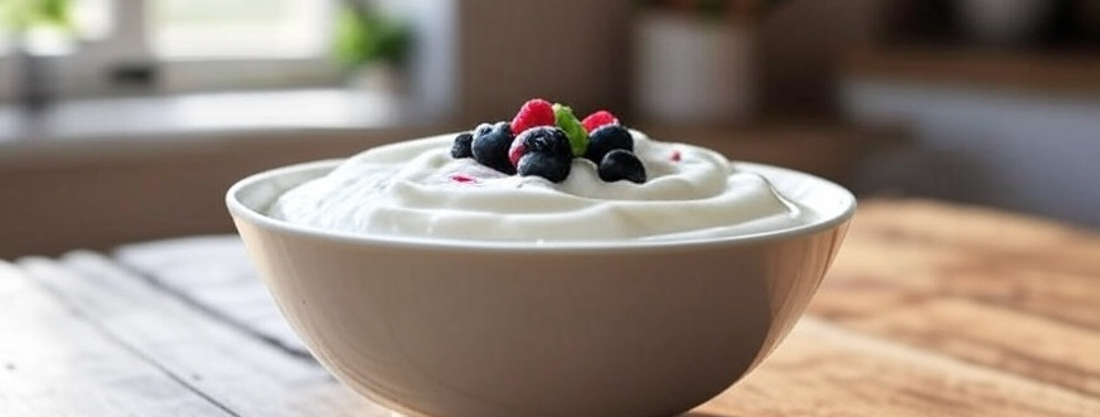
Foods High in Amino Acid GABA
You know GABA is important, and supplementing with nutraceuticals like GABA-Mag can be a great way to support GABA levels. But you should also know that there are other ways to try to support GABA levels and GABA function. There are foods that may help boost GABA levels, including foods that contain GABA and foods that help support production of GABA. So, without further ado, here is an overview of some of the best "GABA foods."
Foods High in Amino Acid GABA
As a brief primer (or refresher) on GABA, gamma-aminobutyric acid (GABA) is an inhibitory neurotransmitter and one of the key neurotransmitters in the brain, known for its calming effects. GABA helps reduce anxiety, promote relaxation, and support overall brain function. Its function is essential for mental health, as low GABA levels have been linked to various mental health conditions such as anxiety and depression. Additionally, GABA is important for cognitive function, influencing mental performance, attention, and neurological health.
Many people are interested in boosting their GABA levels to improve their mental well-being. Boosting GABA levels can offer health benefits such as improved mood, stress reduction, and overall mental health improvements. Certain foods may help increase GABA naturally, supporting the body's ability to maintain optimal GABA activity.
Some foods contain GABA directly, while other foods contain things that support the brain’s natural production of GABA. In this post, we’ll explore the best foods to support GABA levels and explain how they work.
Fermented Foods: A Direct Source of GABA
Fermented foods are among the few that contain measurable amounts of GABA. This is because the fermentation process itself produces GABA, as beneficial bacteria (like lactic acid bacteria) produce GABA by converting glutamate into GABA during fermentation. The GABA concentration in these foods can vary depending on the specific fermentation process used.
Some Foods to Try:
- Kimchi (fermented vegetables)
- Sauerkraut
- Miso
- Tempeh
- Yogurt (and other probiotic-rich dairy products)
Incorporating these into your diet may provide a natural source of GABA, potentially helping to support relaxation and reduce anxiety.


Whole Grains: Rich in GABA Precursors
Whole grains like brown rice, oats, and barley contain glutamine, an amino acid that acts as a precursor to GABA. Your body can convert glutamine into GABA, helping to regulate neural excitability and promote a sense of calm. Sprouted grains in particular may be a valuable addition to a GABA-oriented diet. Aside from GABA, whole grains also provide important vitamins and minerals that support overall health.
While whole grains don’t contain significant amounts of GABA directly, they provide essential building blocks that may support the natural GABA-making processes of your brain and body. Including these grains in your meals can help increase GABA production naturally.
Nuts and Seeds: Packed with Supportive Nutrients
Nuts and seeds are great additions to your diet if you’re looking to support GABA production. Foods like almonds, walnuts, and pumpkin seeds contain important nutrients like magnesium, which helps regulate the GABA receptor function, as well as amino acids like glutamine and glutamate—both precursors to GABA. Magnesium and other nutrients found in nuts and seeds may also play a role in supporting the immune system by enhancing immune cell activity and reducing inflammation. These foods can help maintain healthy GABA levels in the body by providing the nutrients needed to support GABA production and functioning.

Leafy Greens: Full of Glutamic Acid
While leafy greens don’t contain GABA directly, they may support the body’s natural ability to produce it. Leafy greens such as spinach and kale are rich in glutamic acid, which is a precursor to glutamate. Glutamate, in turn, can be converted into GABA within the brain. Although it is not a leafy green, broccoli may help support healthy GABA function and GABA levels in a similar way. In addition to potential GABA benefits, these vegetables offer a wealth of other nutrients like vitamins, minerals, and fiber that contribute to overall well-being.

Supporting GABA Production with a Balanced Diet
While only fermented foods provide measurable amounts of GABA directly, many other foods, including whole grains, nuts, seeds, and leafy greens, contain important nutrients that may help support the natural production of GABA. A diet rich in these foods may promote brain health, improve relaxation, and help balance your mood.
If you’re looking to boost your GABA levels naturally, consider adding some of these foods to your meals. Whether through fermented foods for direct GABA or nutrient-rich grains, greens, and seeds for GABA precursors, your brain will thank you.
This article is for informational purposes only and does not constitute medical advice. The content provided is not intended to be a substitute for professional medical advice, diagnosis, or treatment. Always consult your physician or other qualified healthcare professional with any questions you may have regarding a medical condition or treatment before undertaking a new healthcare regimen.

